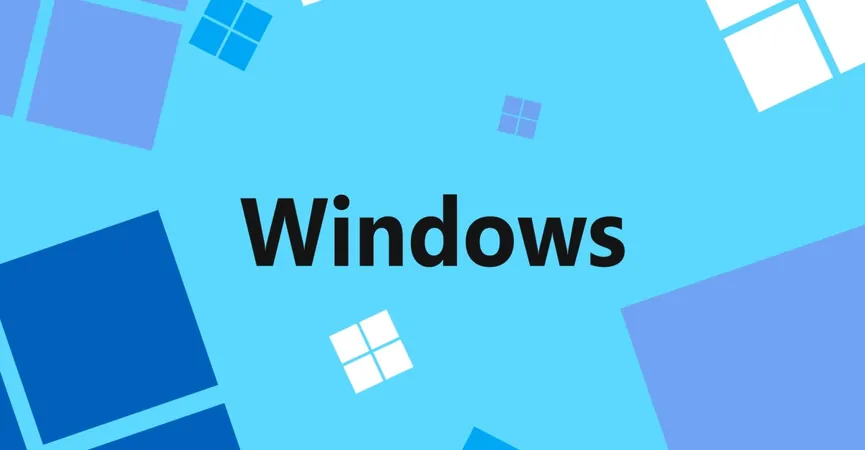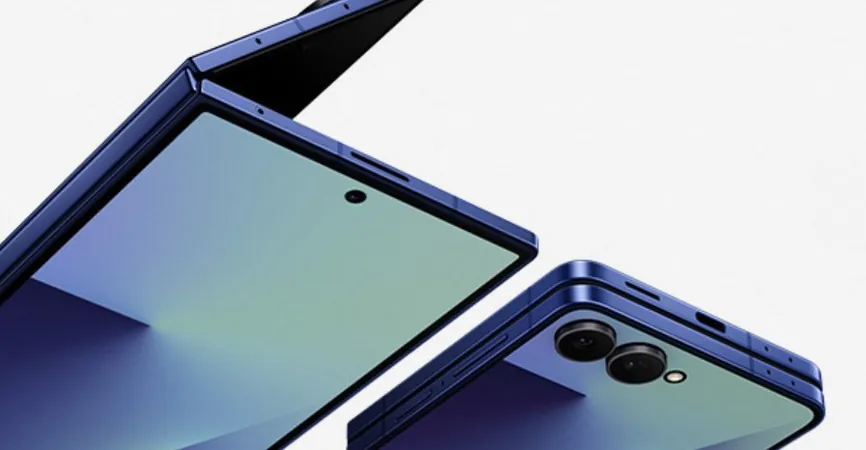
Unlocking Secrets of the Mind: How Pupil Dilation Reveals the Strength of Your Working Memory
2025-05-27
Author: Ting
What is Working Memory?
Picture a bustling kitchen: dishes clatter, and amidst the chaos, you mentally note that your soap dispenser is running low. This juggling act is the essence of working memory, a mental tool that helps us keep track of fleeting thoughts.
The Eye-Opening Discovery
Recent research has unveiled a fascinating link between your pupils and your brain's working memory. A study conducted by researchers at the University of Texas at Arlington reveals that how much your pupils expand when concentrating can indicate the efficiency of your mental processing.
Why It Matters
Working memory is crucial for tasks like dialing phone numbers, comprehending spoken sentences, and solving problems. Unlike long-term memory, which holds onto information for years, working memory operates in real-time, typically holding only three to seven pieces of information at once.
Tracking Performance with Eye Movements
In an innovative experiment, 179 college students participated in tests designed to last just moments. Using eye-tracking technology, researchers measured how pupils responded while participants tried to remember shapes and colors. Surprisingly, those who performed poorly showed less pupil dilation compared to high achievers.
The Science Behind Pupil Dilation
Pupil dilation is controlled by the autonomic nervous system and has been shown to react to cognitive load. This study highlights a direct link between pupil response and working memory accuracy—larger and more frequent dilations correlated with better memory recall.
Applications in Education and Beyond
Imagine a future where teachers can monitor student focus in real-time through simple gaze sensors. This innovation could revolutionize personalized instruction, allowing educators to adjust their methods on-the-fly if a student appears disengaged or overwhelmed.
Broader Implications for Cognitive Development
These insights align with resource allocation theories in psychology, suggesting that the brain prioritizes important information by directing more energy towards it—something mirrored by pupil dilation. Moreover, distractions and lack of practice can adversely affect this resource.
Tips for Enhancing Working Memory
While technology may someday help monitor focus, traditional strategies can also boost working memory. Taking breaks during intense study sessions, organizing information into manageable chunks, and practicing mindfulness are effective methods.
The Road Ahead: Further Research
This groundbreaking study paves the way for larger investigations into the relationship between pupil behavior and cognitive performance across various age groups and cultures. The implications could extend from educational settings to diagnosing cognitive disorders.
Final Thoughts: Your Eyes Hold the Key
In a world where multitasking is essential, understanding how our eyes reflect brain function offers valuable insights. The next time you find yourself in a mental juggling act, remember: your pupils may be revealing the secrets of how effectively you're managing life's complexities.




 Brasil (PT)
Brasil (PT)
 Canada (EN)
Canada (EN)
 Chile (ES)
Chile (ES)
 Česko (CS)
Česko (CS)
 대한민국 (KO)
대한민국 (KO)
 España (ES)
España (ES)
 France (FR)
France (FR)
 Hong Kong (EN)
Hong Kong (EN)
 Italia (IT)
Italia (IT)
 日本 (JA)
日本 (JA)
 Magyarország (HU)
Magyarország (HU)
 Norge (NO)
Norge (NO)
 Polska (PL)
Polska (PL)
 Schweiz (DE)
Schweiz (DE)
 Singapore (EN)
Singapore (EN)
 Sverige (SV)
Sverige (SV)
 Suomi (FI)
Suomi (FI)
 Türkiye (TR)
Türkiye (TR)
 الإمارات العربية المتحدة (AR)
الإمارات العربية المتحدة (AR)